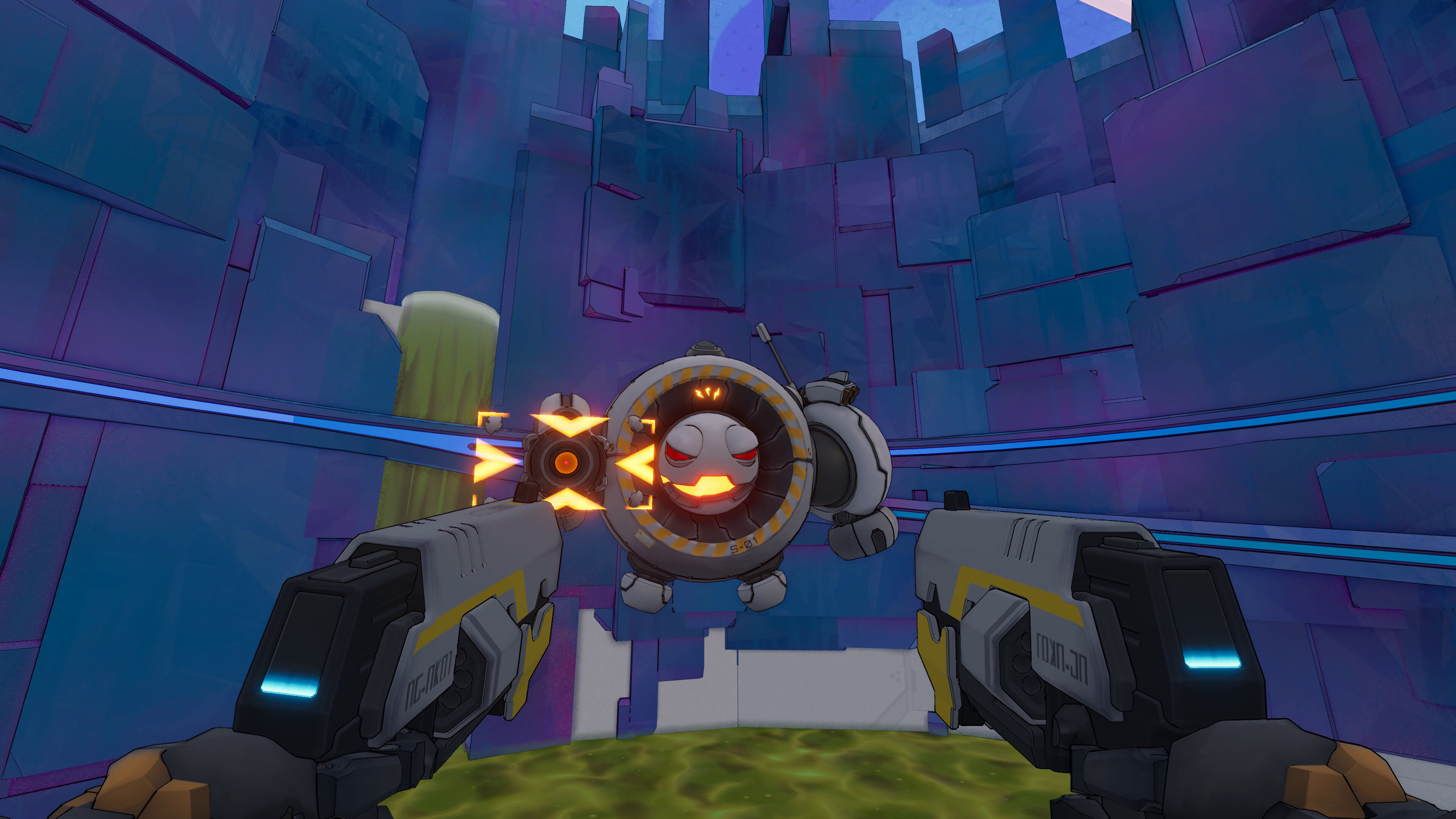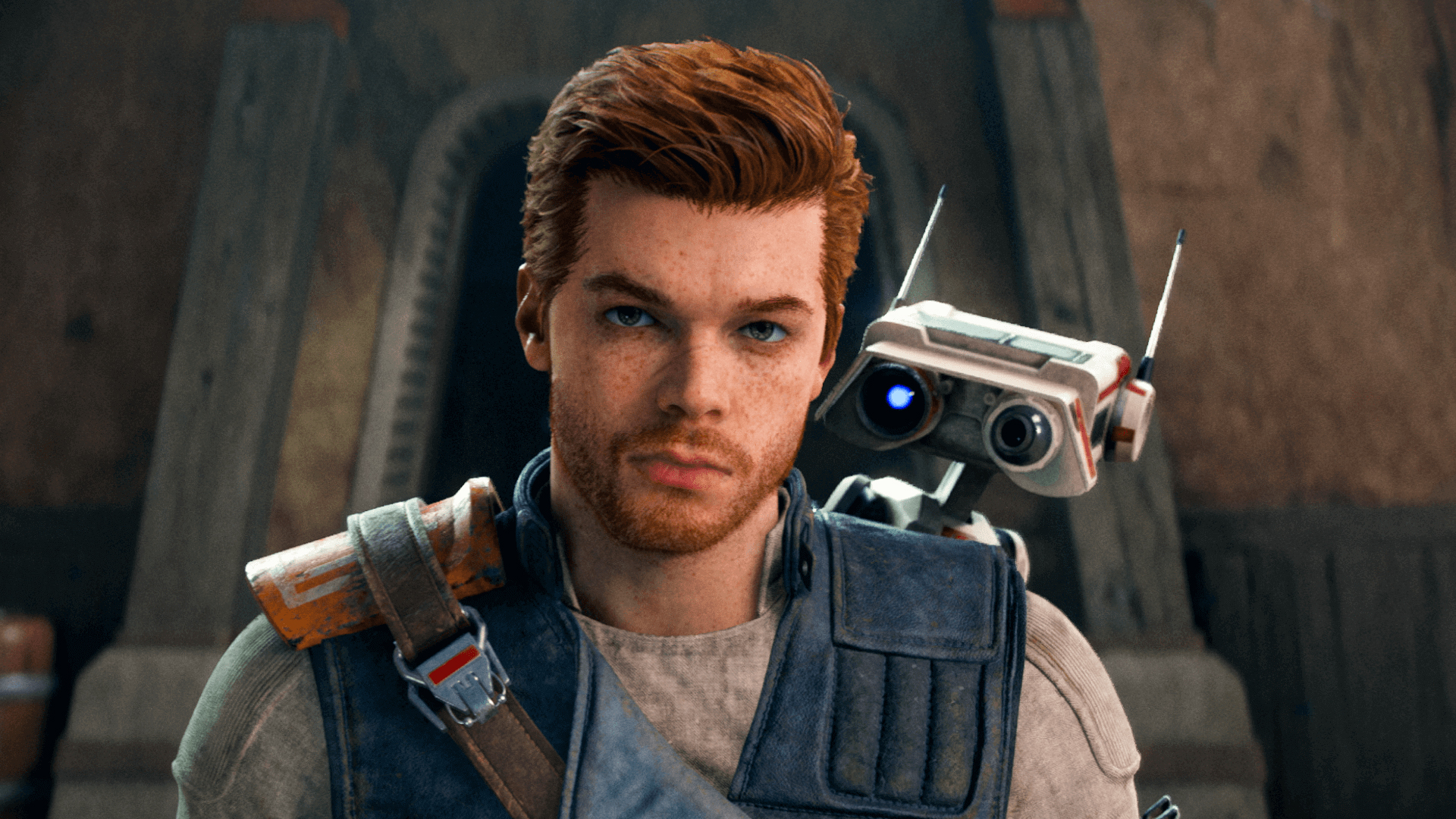Explosive, colorful, and punchy, Everspace 2 combines the looter-shooter RPG treadmill with arcade space dogfights to build an interesting combo that has surprising diversity in how you can play it. While it looks like a space sim on the outside, and it has nods to the stuff you do in that genre like fight pirates, mine asteroids, and build reputation, Everspace 2 shouldn’t be mistaken for one. To its benefit and its detriment, this is a through-and-through lootin’ and shootin’ beast that’s much more interested in entertaining you with flashy fights and reconfiguring your fighter in a mind-boggling number of ways rather than simulating – or stimulating you with – anything else.
That right there should probably tell a lot of you whether you want to play it at all. The other bit is that this is technically a sequel, but… not really. The first Everspace is a roguelite where every mission is procedurally generated, while this one is a more traditional action RPG about taking on a main story quest and side missions, solving open-world puzzles, and blowing through randomly generated contracts for the 50 or so hours it takes to finish the main story. Or 100 hours to play all of it. Then a few dozen more optimizing your builds to bash away at the randomly generated endgame bits, if you like those.
That’s all to say Everspace 2 is pretty different from the original, though it is a direct sequel in terms of story: You’re one of those clone pilots you played as in the first one’s roguelite framework, but there’s no more coming back from the dead. You might be happy about that if you loved the story in the first one, and you might be a bit confused at times if you skipped it, but there’s a cache of really thorough – if largely forgettable – log entries to bring you up to speed on the story and world you’re dumped into. The writing and characters are something between stiff and disposable – though there are a few winners and good gags, my favorite among them being a broken garbage-disposal robot.
It’s kind of a shame, really, because you do spend a lot of time in this world. Characters have conversations as you jump at high speed from encounter to encounter within systems, and you pick up missions from the same people over and over. There’s even a great “story so far” log for those who take big breaks between game sessions—so it feels like a waste that characters spend so much time on empty dialogue or redundant explanations. But honestly, you’re not playing Everspace 2 for the dialogue, you’re playing it for the spaceships blowing up – which it does pretty dang well.
It’s good combat doesn’t get old, because it’s all Everspace 2 has going for it.
Flying around is smooth, with nary a technical hitch or slowdown in sight delivering a classic adaptation of generally short-range dogfights where you rock-paper-scissors your equipped damage types to optimize against enemy shields and armor. Enemies are numerous, and on most difficulties can overwhelm you if you’re not careful – it’s all about positioning and approach. Picking out priority targets early is important, knocking down enemies like snipers or ensnaring web drones before they can strike and leave you vulnerable, all while choosing to take the fight somewhere you can dodge behind asteroids to get cover between your lone fighter and heavier enemy ships. It’s combat that didn’t get old for me, and even when I had outleveled a mission I found it pretty relaxing to jump on and take down squads of baddies.
It’s good that it didn’t get old, because combat – and preparing for more combat – is really all that Everspace 2 has going for it. The vast majority of missions are either “go somewhere and have a fight” or “retrieve something from people after you fight them.” The rest of the time is spent hopping between ports, docking, fetching, and listening to all of that rambling dialogue. The other thing to do is figuring out environmental puzzles. Most locations have some hidden hatches to discover and blow open, a timed challenge to carry something from one spot to another, or one of many, many hunts through random debris for whatever generator core or battery you need to open a door to some loot. Those are nice in the early hours when you’re still encountering bits of debris you haven’t seen before, but by the end they’re just repetitive hunts among familiar bits of broken space station and asteroid.
Those maneuvering challenges might’ve been more interesting if Everspace 2 had more sim chops than it does, where piloting your ship is a challenge and first-person perspective is encouraged. As it is, the controls are good for arcade spaceflight, and they feel reactive and crisp on both mouse and keyboard and controller, and are fine for a flightstick. However, those who prefer a more “traditional” Newtonian spaceflight experience will be disappointed in Everspace 2’s version: The ship controls just aren’t fine enough to let you execute tight maneuvers without frustration when the ship doesn’t automatically correct its motion for you.
Which is a missed opportunity, because experiencing the different ships and how they fly is a strength of Everspace 2. Sure, the 30-some enemy types might get stale by the end, but that’s where the looter part of this looter-shooter comes in. There are three ship classes: Light, Medium, and Heavy – all fighters. Each has three further classes, all of which play quite differently. Ships can equip any of an array of modules like boosters, armor, and shields, of which there are variants that meaningfully change your combat style. Do you want a shield that’s tougher, or one that’ll recharge faster after it breaks? Do you want a big boost of speed for a short time, or a small boost that can be sustained for longer than you’ll ever use? Then there are 10 primary weapons, from beam lasers to autocannons, and a bevy of missiles, mines, and rockets to use as secondary armaments.
This is exactly the kind of customization I want from a loot-driven game.
And did I mention devices? That’s stuff like a localized EMP generator, viral attack programs, an invincible frontal shield, a teleporter, and more, all of which you can level up.
And you tweak all of that stuff with boosts to range or damage or energy capacitors or speed, and you can put it on every one of those nine ship types. There are more ways to build a cool space fighter in this game than I could even begin to try out in one 50-hour playthrough. It’s exactly the kind of customization I want from a loot-driven, class-based game like this one.
Take the Interceptor, for example: it’s a Medium fighter class that focuses on absolutely never having to stop shooting. It laughs full-auto at energy-hungry guns other fighters can only fire in bursts, and once equipped with a fast-charging capacitor it’ll never disappoint. Alternatively you could try out the light ships, like the Vanguard, which boosts its shields when the afterburner is on and does extra damage when striking enemies from behind. Kitted out with high-damage, low-range weapons, it’s a nightmare for enemies who can’t keep you off their tail.
That’s not all: one of the Heavy class ships is basically a necromancer that makes drones out of enemy wrecks, and another is a bomber that has unlimited missile ammunition. My favorite Heavy, though, is the Gunship. True to its name, it just has literally twice as many guns as any other ship available. Does that mean it drains its batteries twice as fast? Yes. Did I care? Not one whit.
That array of options does come at a cost, of course: you’re constantly shuffling new loot and consumables through your inventory. It’s a lot of busywork that comes with the genre, but the barrage of new gear in Everspace 2 is constant because you level up a lot, which means gear gets outdated fast. That’s especially true if you’re plowing into new storylines rather than taking your time on random jobs or side missions. You need to break down loot for crafting materials, which you use to upgrade the loot you actually want to keep or to make new loot, but you also set some materials aside to pay for perks from people you meet. You need a high tolerance for picking through new numbers or you’ll go cross-eyed fast.
The upshot, however, is that I always felt like I could try new things. That was a blessing when there were so many new guns and ships to play with. I didn’t feel penalized for never picking a “main” ship and sticking with it, or for repeatedly changing weapon selection and devices to experiment with.







